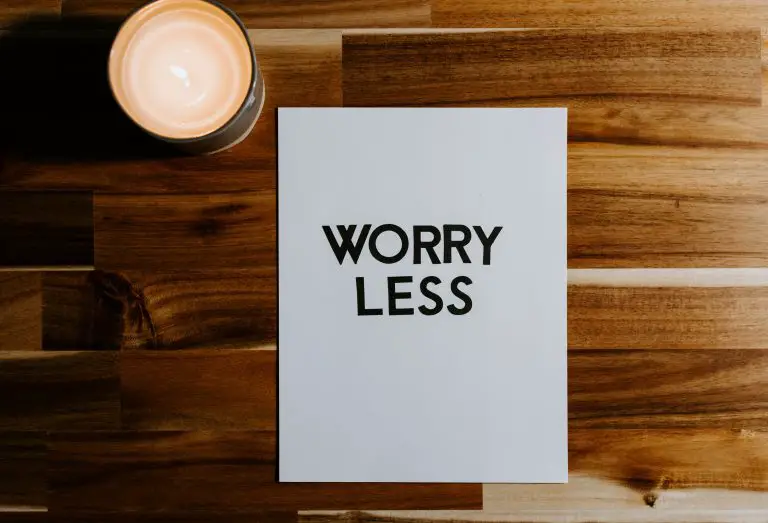Discover Strategies to Overcome the Cost of Living Crisis and Thrive
The cost of living is rising, and it can be a struggle to keep up with the increasing expenses of daily life.
From housing and healthcare to education and transportation, the cost of necessities is putting a strain on many individuals and families.
However, overcoming the cost of living crisis and thriving is possible. By implementing the right strategies and making smart financial decisions, you can take control of your finances and secure a stable future.
This blog will explore various strategies for overcoming the cost of living crisis. We will discuss budgeting techniques, ways to increase your income, and methods for reducing expenses. We will also delve into the importance of saving and investing, as well as the importance of having a solid financial plan in place.
No matter what stage of life you are in or your financial goals, there are steps you can take to overcome the cost of living crisis and thrive. By taking a proactive approach to your finances, you can gain financial security and peace of mind, and set yourself up for long-term success.
So, whether you’re looking to pay off debt, save for retirement, or make ends meet, this blog will provide the tools and strategies to achieve your financial goals and overcome the cost of living crisis.

What is the Cost of Living Crisis?
The cost of living crisis refers to the increasing difficulty for individuals and families to afford the basic necessities of daily life, such as housing, healthcare, education, and transportation. This can and is caused by various factors, such as inflation, rising housing costs, and stagnant wages.
The cost of living crisis can affect people from all walks of life, but it often disproportionately impacts low-income households and those living in urban areas with high housing costs.
The cost of living crisis can lead to a number of financial difficulties, such as increased debt, difficulty saving money, and an inability to afford basic necessities. It can also have a negative impact on overall well-being and quality of life.
Governments and organizations have been trying to devise solutions to the cost of living crisis. These solutions include increasing the minimum wage, tax credits, subsidies, and housing programs.
It’s important to note that the cost of living crisis is not a new phenomenon, it’s been an ongoing issue for many people for years. It’s just that it is now affecting much more people in all walks of life.
Causes of the Cost of Living Crisis
There are a few factors that contribute to the cost of living crisis.
One of the leading causes is inflation, which is when prices increase over time. This can result from increased production costs or an increase in demand for goods and services.
The cost of nearly all goods and services has been greatly affected by the increase in inflation nd prices.
Part of the increase in inflation is a result of the hangover from the covid pandemic, the government’s response to it, and the conflict in Ukraine disrupting gas and food supplies.
Another factor is the increasing cost of housing. Housing prices have been steadily increasing in many areas, making it difficult for people to afford rent or a mortgage.
Finally, wages have not kept up with the cost of living. In many cases, wages have not increased as quickly as the cost of living, leaving people struggling to make ends meet. This can be especially difficult for those who are already living paycheck to paycheck.
The Impact of the Cost of Living Crisis
The cost of living crisis can seriously impact people’s lives. It can leave people feeling overwhelmed and stressed, as they cannot keep up with the rising costs.
The crisis leads to financial hardship, as people cannot pay their bills or cover their living expenses. Risking debt, eviction, and even homelessness.
The cost of living crisis is also having a negative impact on people’s mental health. Living paycheck to paycheck can lead to feelings of helplessness and despair. This can lead to depression, anxiety, and other mental health issues.
The current cost of living crisis also prevents people from achieving their goals.
When faced with rising costs, people may have to postpone ro give up on their dreams and aspirations in order to make ends meet.
This can be incredibly disheartening and can leave people feeling powerless.
How to Overcome the Cost of Living Crisis
Fortunately, some strategies can help you manage the cost of living crisis and even thrive.
The first step is to understand your finances and create a budget. This will allow you to keep track of your expenses and better manage your money.
Once you have a budget in place, you can start looking for ways to reduce your expenses and save money.
Additionally, you may want to look for ways to increase your income, such as taking on a second job or freelancing.
It’s all about taking an active role in your finances and being proactive rather than reactive.
Strategies to Live Within Your Means
Living within your means is important in overcoming the cost of living crisis. This means spending less than you earn, and being mindful of your expenses. Here are some strategies to help you live within your means:
- Track your expenses: Keeping track of your expenses can help you better manage your money. This can be done by recording your expenses in a notebook, spreadsheet, or budgeting app.
- Make a list before shopping: Before you go shopping, make a list of the items you need and stick to it. This will help you avoid impulse buys and save money.
- Buy in bulk: Buying in bulk can help you save money on items you use often. It can also help you save time, as you won’t have to go shopping as often.
- Shop around: Shopping around can help you find the best deals on the items you need. This can be done by comparing prices online or visiting different stores.
- Get rid of unnecessary expenses: Look at your budget and identify any unnecessary expenses. These can be things like subscription services or eating out. Reducing or eliminating these expenses can free up more money for your essential expenses.
Strategies to Save Money
Saving money is another important step in overcoming the cost of living crisis. Here are some strategies to help you save money:
- Start an emergency fund: An emergency fund is a savings account that covers unexpected expenses. This can help you avoid using credit cards or taking out loans in the case of an emergency.
- Cut back on luxury items: Luxury items can add up quickly. Try to cut back on these items and use the money you save for more essential expenses.
- Take advantage of discounts: Look for discounts and deals when shopping. This can help you save money on the items you need.
- Negotiate bills: If you’re struggling to pay your bills, try negotiating a lower rate or payment plan. Many companies are willing to work with customers in difficult financial situations.
- Take advantage of free activities: Many free activities can help you save money. These can include visiting the library, walking, or having a picnic in the park.
Strategies to Increase Your Income
Increasing your income can be a great way to help manage the cost of living crisis. Here are some strategies to help you increase your income:
- Take on a second job: Taking on a second job or side hustle can provide an extra source of income. This can be a great way to make some extra money and help you develop new skills.
- Freelance: Freelancing is another great way to make extra money. This can be done on sites like Upwork or Fiverr, or by finding clients on your own.
- Start a business: Starting a business can be a great way to make money and build your own future. This can be done online or in your local area.
- Ask for a pay rise. Show your worth to the company and see what they say; the worst thing they could say is no.
Strategies to pay off debt
One of the most effective ways to overcome the cost of living crisis and achieve financial stability is by paying off debt. Here are some strategies to help you do just that:
- Create a budget: The first step in paying off debt is to know exactly how much you owe and where your money is going. Create a budget that tracks your income and expenses, and use it to identify areas where you can cut back on spending.
- Prioritize high-interest debt: If you have multiple types of debt, it’s important to prioritize the ones with the highest interest rates. These debts will cost you more in the long run, so it’s best to tackle them first.
- Use the snowball method: This involves paying off your smallest debt first and then using the extra money you save to tackle your next smallest debt, and so on. This can help you build momentum and see progress quickly.
- Use the Avalanche method: On the other hand, the avalanche method involves paying off the debt with the highest interest rate first, regardless of the balance. Once the highest-interest debt is paid off, you move on to the next highest-interest debt, and so on. This method is designed to save you the most money in interest charges over time, but it may take longer to see progress and feel motivated.
- Increase your income: Another way to pay off debt is to increase your income. Look for ways to earn more money, such as getting a higher paying job, selling unwanted items, or starting a side hustle.
- Negotiate with creditors: If you’re having trouble making payments, reach out to your creditors and see if they are willing to negotiate a lower interest rate or a more manageable payment plan.
- Avoid taking on more debt: The best way to pay off debt is to avoid taking on more debt. This can be done by sticking to your budget, avoiding impulse purchases, and living below your means.
- Seek professional help: If your debt is overwhelming and you’re not sure how to proceed, consider seeking the help of a financial planner or credit counselor. They can provide guidance and support to help you get back on track.
Resources for Overcoming the Cost of Living Crisis
If you’re struggling with the cost of living crisis, there are resources available to help you. Here are some resources to help you manage the crisis and even thrive:
- Financial planners and coaches: Financial planners and coaches can help you better manage your money and reach your financial goals.
- Budgeting apps: There are many budgeting apps available that can help you keep track of your expenses and manage your money.
- Debt counsellors: Debt counsellors can help you manage your debt and create a plan for paying it off.
- Personal finance books and podcasts: visiting your library and finding some good books on personal finance can help you manage your money better.
Remember that paying off debt is a process that may take time to see results. But by staying committed to your plan, you can take control of your finances and achieve financial stability.
FAQ: Cost of living crisis
What is causing the cost of living crisis?
The cost of living crisis is being caused by local and international factors.
The pandemic caused a major disruption in global supply chains causing long delays and competition for transport services rasing the costs of moving goods and services.
The conflict in Ukraine is causing major disruptions to food and energy supplies.
WHile governments have started to raise interest rates cuaisng mortgages and loan repayments to increase.
All of these factors are combining to cause the cost of living crisis.
How can I manage the cost of living?
The first thing to do is to understand how much money is coming in and going out.
Then review if or where you could reduce or cut out any costs.
Shopping with a list, looking for cheaper offers and negotiating better deals.
You may also need to find out what help is out there for rent or other bills that are becoming to much.
Why is the cost of living so high?
The cost of living is high due to a variety of reasons.
High inflation is pushing the prices of nearly everything up. This is due to supply and demand mismatches, energy costs, and other economic factors after the pandemic.
The pandemic has caused a global shipping container shortage, which has led to bidding wars to get products on ships and increased labor costs.
Governments around the world have raised interest rates to combat inflation, further contributing to the high cost of living.
Will the cost of living ever go back down?
The cost of living varies, and although it generally goes up overall, it often comes down after a period of spiking high due to an easing in the conditions which caused the spike i.e. interest rates coming down, fuel costs reducing. Inflation is expected to ease but it could take some time for prices to reduce.
Conclusion
The cost of living crisis can be overwhelming, but using some tried and tested strategies can help you manage it and even thrive.
By understanding your finances, living within your means, and increasing your income, you can overcome the crisis and create a better future for yourself.
If you’ve made it this far, congratulations! You’re already taking steps towards a healthier financial future. But maybe you’re feeling a bit overwhelmed. Maybe the of budgeting, saving, and investing still makes you break out in a cold sweat. Don’t worry, you’re not alone, and help is available.
At Financially Happy Money Coaching, I understand money isn’t just about numbers. It’s about emotions, behaviours, and life choices. That’s why we’re here to help you take the stress out of money and build wealth that aligns with your values and lifestyle.
Whether you’re just starting out on your financial journey or you’re looking to take your finances to the next level, we’re here to guide you every step of the way. I’ll help you understand your financial behaviours, set realistic goals, and create a personalized plan to achieve those goals.
So, why wait? Start your journey towards financial happiness today. Remember, the best time to start was yesterday. The second best time is now.
Click here to schedule your consultation and let’s make your money work for you, not vice versa. 💪💰
Remember, financial freedom isn’t a destination; it’s a journey. And every journey is easier when you have a guide. So, let’s embark on this journey together and create a financially happy future. 🚀💸
📚 Financial Freedom Resources
- The Ultimate Guide To Building Your Savings to $100,000! 📘 is a transformative book that equips readers with principles, strategies, and the mindset 🧠 needed to reach a $100,000 savings goal 💰. It’s a journey towards financial freedom 🚀, challenging beliefs 🤔, embracing new habits 🔄, and overcoming obstacles 💪.
- How to Manage Your Finances: Your Guide to Financial Freedom 📘 is a comprehensive resource packed with practical advice on budgeting 💰, investing 📈, reducing debt 💳, and building wealth 💎. It’s an essential guide for anyone, novice or experienced, aiming to take control of their financial future and achieve financial independence 🚀.
Remember, self-study is a powerful tool for life and financial transformation. Happy reading! 🎉










